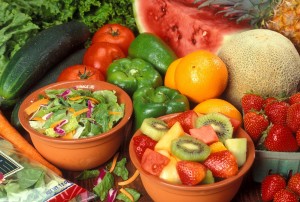Food and Nutrition. What is it, all about?
Food is the basis of all life on earth. The survival of mankind is dependent on the regular supply of food which provides nourishment to the body and energy for the daily activities. Like an automobile car which needs petrol to run, our body needs food to perform several functions such as growth, development, repair and maintenance. Besides, food also protects us against diseases and restores health. The vital importance of food to human beings is highlighted in ancient Indian literature. One of the earliest references to attributes of food is available in the Rig Veda which refers to food as the “mother essence of healing”. In ancient India, food was considered essential not only to increase body strength but also to purify the mind and consciousness. Modern science has shown that food is essentially made up of carbohydrates, proteins, fats, minerals, vitamins and many other phyto-nutrients. The regular intake of a well balanced diet containing the right amount of nutrients plays a vital role in our wellbeing and helps to keep the body and mind fit. Apart from meeting the physical requirements, food also fulfills our emotional and socio cultural needs.
Foods are generally classified based on their composition. Cereals containing starch as the major ingredient are classified as carbohydrate-rich while legumes and pulses are considered as protein-rich. Nuts and many seeds are rich in oils and fats. Fruits and vegetables are loaded with vitamins, minerals and protective phyto-nutrients and are an important source of dietary fiber. Fruits are virtually free of fat and low in calories. Regular consumption of fruits ensures adequate supply of valuable minerals and phyto-nutrients besides keeping the digestive system perfectly healthy. Recent studies show that the protective phyto-chemicals in fruits guard the body against the undesirable effects of the highly toxic free radicals and aid in preventing many life-style diseases affecting mankind. Since fresh fruits are ingested without processing, the availability of nutrients to the body is the highest among all foods.
Vegetables, on the other hand, are also rich in nutrients and mineral elements. Many vegetables are consumed in the raw form which serves to provide heat-labile vitamins to the body and act as invaluable source of mineral nutrients and fiber, so vital for a healthy diet. A large number of studies around the world have shown that people regularly consuming adequate quantity of fruits and vegetables may be less prone to the risk of chronic diseases such as heart disease and cancer.
Ayur Veda, the oldest known scripture in the world on health, nutrition and medicine has prescribed several guidelines for a healthy eating habit. A significant aspect of this work is that emphasis is laid not only on the nutritive quality of food but also on many other attributes such as cleanliness, hygiene, moderation, combination of foods, timely eating and even the ambience in which food is consumed. These factors reflect the importance given to food in order to maintain health and well-being of the masses.



